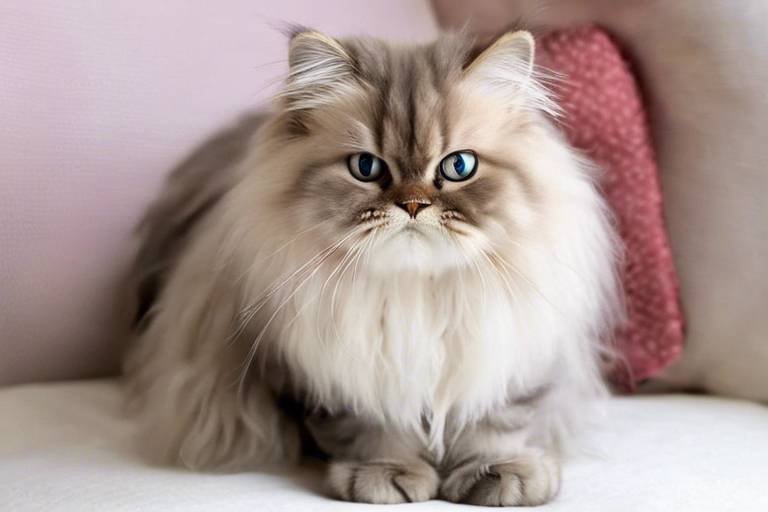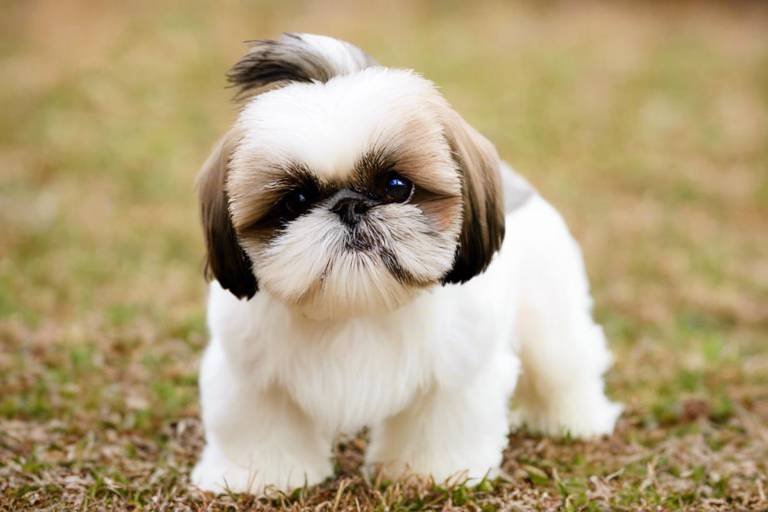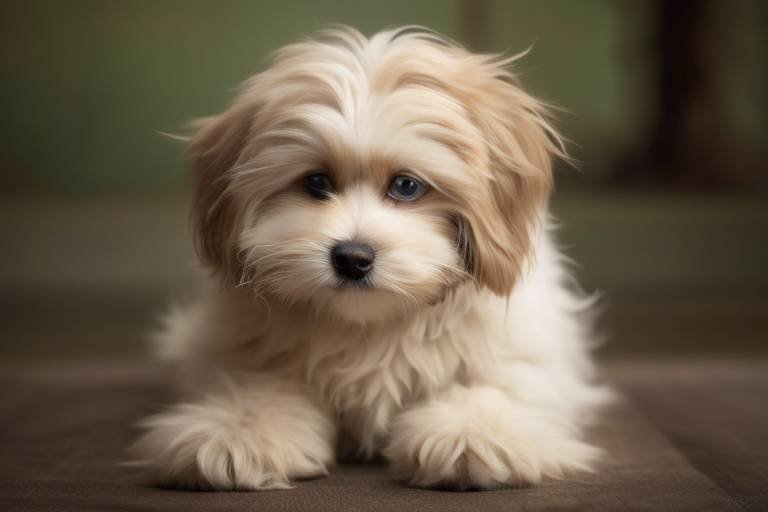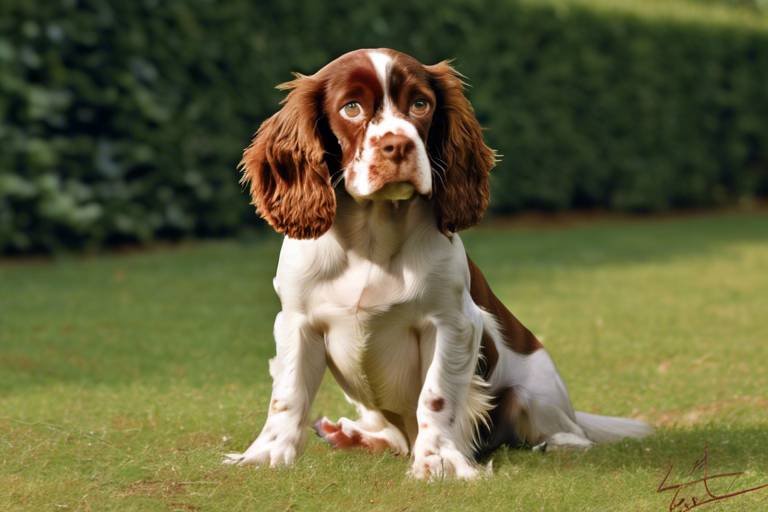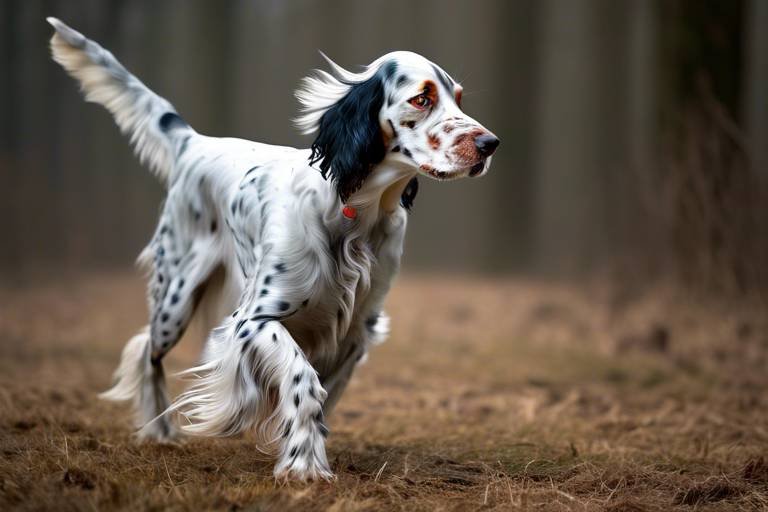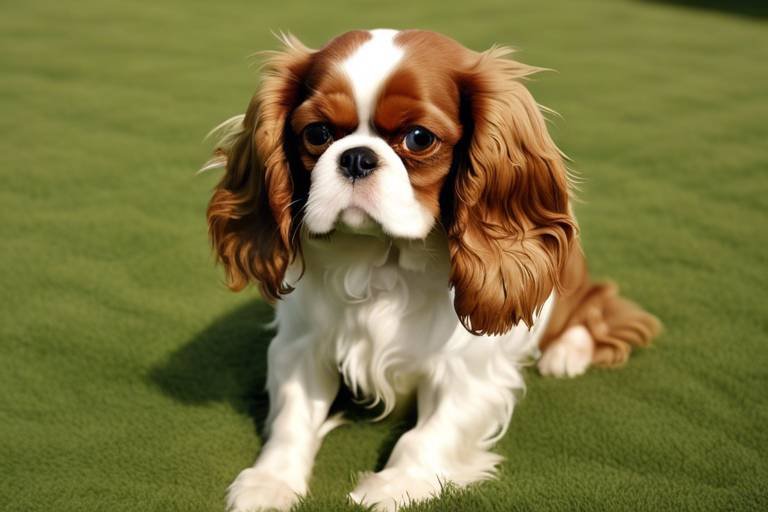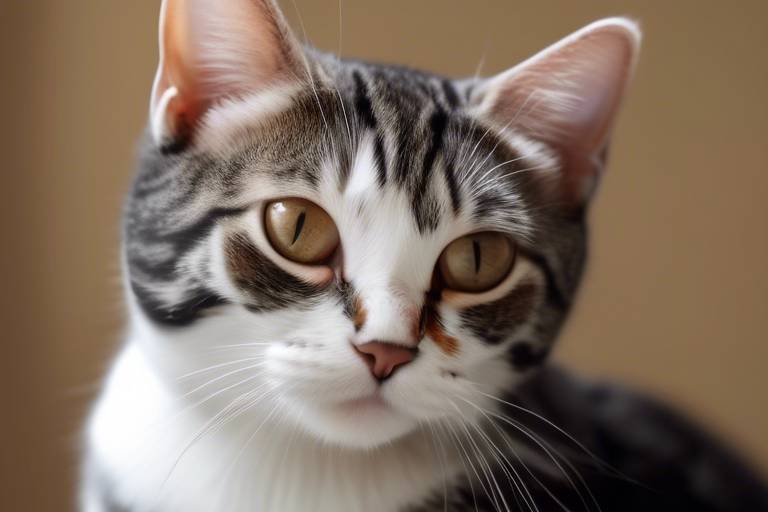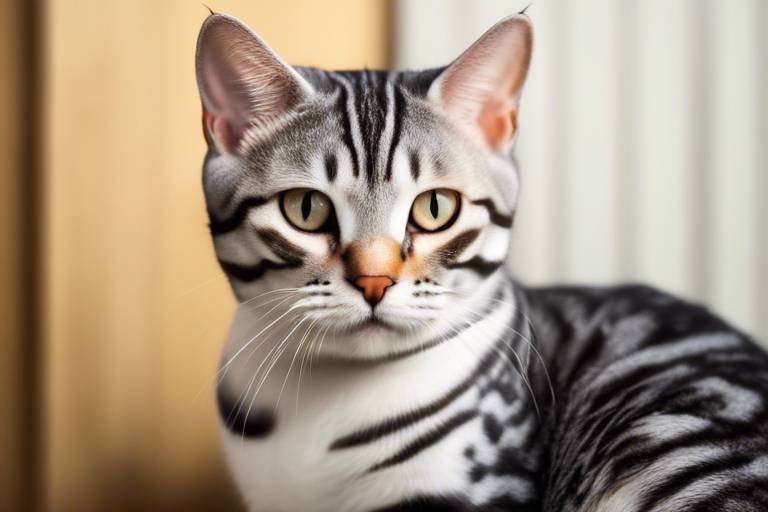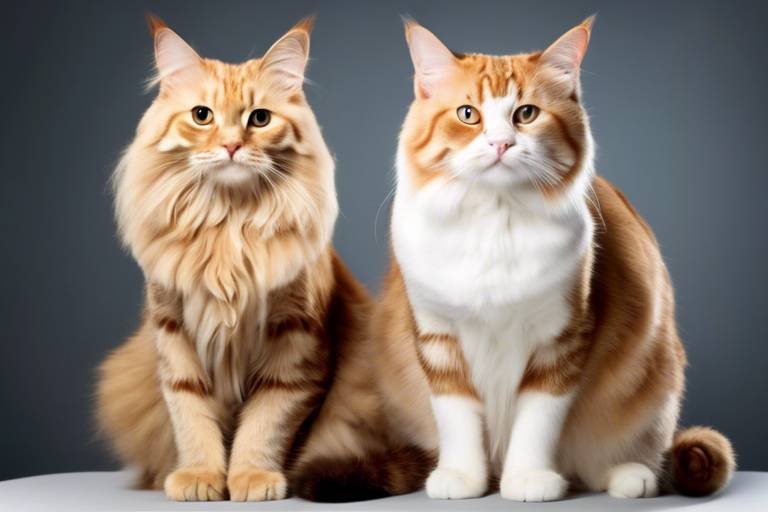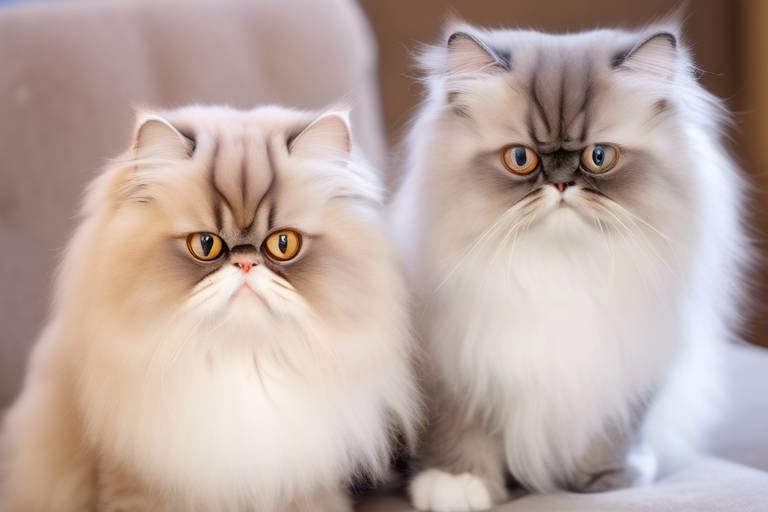Why the British Longhair Cat Is So Adorable
Have you ever come across a cat that just makes your heart melt? The British Longhair cat is one such breed that captures the essence of cuteness and charm. With their plush coats and captivating personalities, they are not just pets; they are companions that bring joy and warmth into our lives. This article explores the various traits that make the British Longhair cat an irresistible companion, from their charming appearance to their affectionate personalities.
The British Longhair cat boasts a distinctive appearance that sets it apart from other breeds. Imagine a fluffy cloud with a round face and big, expressive eyes—that's what these cats look like! Their luxurious, plush coat is not only visually appealing but also incredibly soft to the touch. The sturdy build of the British Longhair gives them an air of elegance and strength, making them a favorite among cat enthusiasts. Their coat comes in a variety of colors and patterns, ranging from solid hues to intricate tabby designs, which adds to their unique charm. With their broad heads and short, thick necks, they exude a sense of authority and grace that is hard to resist.
When it comes to personality, the British Longhair is a true gem. Known for their sweet and gentle demeanor, these cats are friendly and adaptable, making them great companions for families and individuals alike. They have an innate ability to sense their owners' moods, often curling up beside you during a quiet evening or playfully engaging with children. Their affectionate nature is one of their most appealing traits. These cats are known for their loving behavior towards their owners, often seeking out attention and cuddles, which enhances their appeal as pets. They thrive on human interaction and will often follow you around the house, making them feel like a part of the family.
What makes British Longhairs even more adorable is their affectionate nature. They are not just content with being in the same room as you; they want to be involved in your life. Whether it’s sitting on your lap while you work or nudging you for some petting, these cats have a way of making you feel loved. Their gentle purring can be incredibly soothing, creating a calming atmosphere in your home. It’s like having a furry therapist by your side!
Despite their calm demeanor, British Longhairs enjoy playtime just as much as any other breed. They engage in various activities that stimulate both their minds and bodies. Think of them as the perfect blend of a cuddly companion and an energetic playmate. From chasing after feather toys to engaging in a game of hide and seek, these cats know how to keep things lively. This playfulness not only keeps them fit but also strengthens the bond between you and your furry friend.
One of the most appealing aspects of the British Longhair is their independence. While they love spending time with their humans, they are also perfectly capable of entertaining themselves when their owners are busy. This makes them a low-maintenance companion, ideal for those who may have a busy lifestyle. You can rest assured that your British Longhair will find a cozy spot to nap or engage in a solo play session while you tackle your daily tasks.
British Longhairs are generally sociable cats that get along well with other pets and children. Their friendly nature allows them to adapt to different environments, making them suitable for various households. They are known to be quite tolerant and patient, which is a big plus if you have younger children or other pets. Their ability to create harmonious relationships within the home adds to their appeal as a family pet.
Proper grooming is essential for maintaining the British Longhair's luxurious coat. Regular brushing is necessary to prevent matting and ensure their health. A grooming routine not only keeps their fur looking fabulous but also strengthens your bond with your pet. Imagine spending quality time together while pampering your furry friend! Additionally, it’s a great opportunity to check for any skin issues or parasites, ensuring your British Longhair stays healthy and happy.
Understanding the dietary requirements of British Longhairs is crucial for their overall health. These cats need a balanced diet to support their active lifestyle. A mix of high-quality cat food, rich in protein and essential nutrients, will keep them vibrant and energetic. Always consult your veterinarian to determine the best feeding plan for your British Longhair, as their nutritional needs may vary based on age and activity level.
Regular veterinary check-ups and awareness of common health issues in British Longhairs can help ensure a long and healthy life for these adorable cats. Like any breed, they are prone to certain health conditions, so keeping an eye on their well-being is essential. Preventative care, including vaccinations and dental hygiene, should be part of your routine to keep your furry friend in top shape.
- Do British Longhairs shed a lot? While they do shed, regular grooming helps manage their fur and minimizes loose hair around the house.
- Are British Longhairs good with children? Yes, they are generally very tolerant and make excellent companions for families with children.
- How much exercise do they need? British Longhairs enjoy playtime but are also content with a few short play sessions throughout the day.
- What is their lifespan? With proper care, British Longhairs can live between 12 to 15 years, sometimes even longer!
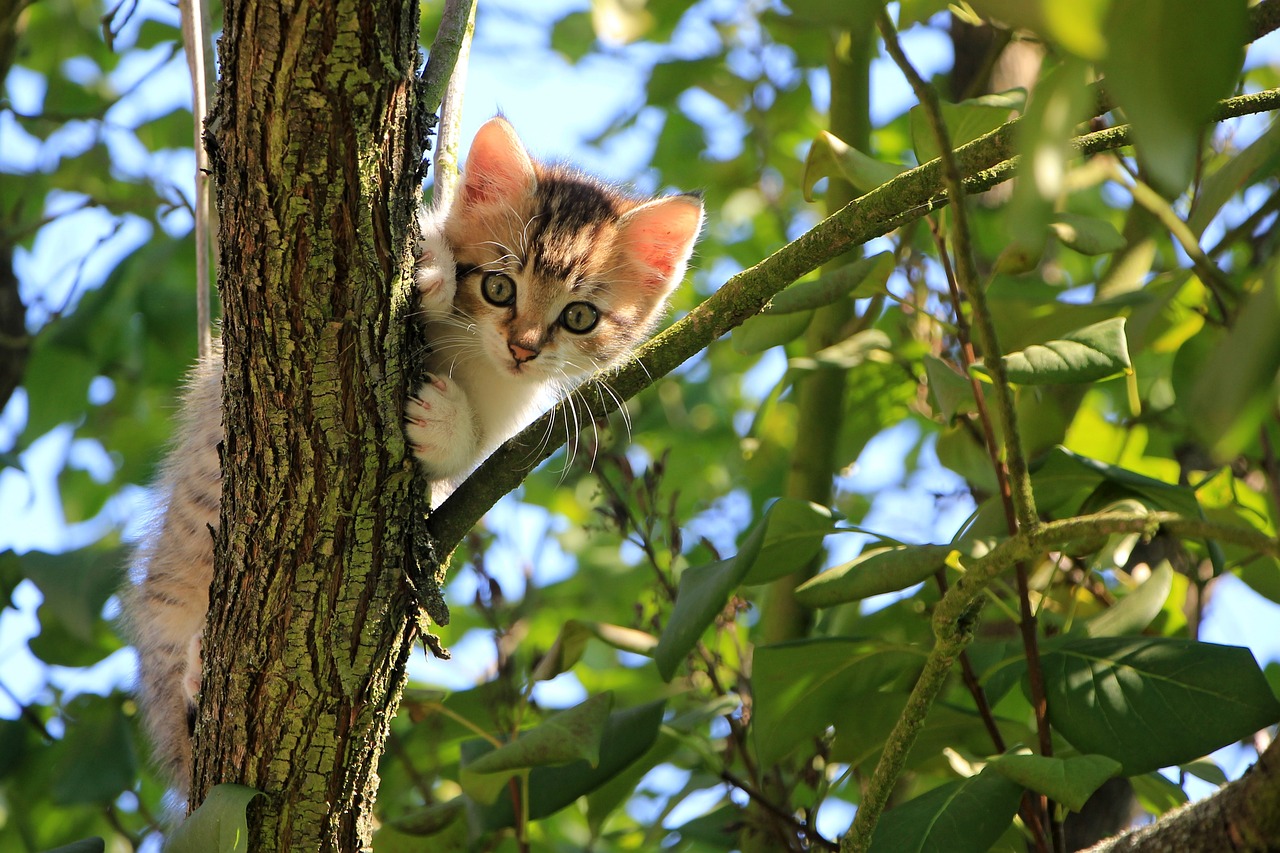
Physical Characteristics
The British Longhair cat is a breed that truly stands out in the feline world, and it's not just because of its name. With a plush, luxurious coat that feels like a warm cloud, these cats are often the first choice for anyone looking for a cuddly companion. Their fur is dense and water-repellent, which helps them adapt to various climates. Imagine running your fingers through a soft, velvety blanket—this is the kind of experience you get when petting a British Longhair.
One of the most striking features of this breed is its round face and large, expressive eyes. Typically, their eyes can be shades of copper, gold, or even blue, sparkling like gems against their thick fur. This roundness adds to their overall charm, giving them an almost cartoonish appeal that melts hearts. Coupled with their sturdy build, these cats exude a sense of robustness and health that is hard to ignore. They have a broad chest, strong legs, and a thick tail, making them look like miniature lions lounging on your couch!
In terms of size, British Longhairs are medium to large cats, with males typically weighing between 12 to 15 pounds and females ranging from 8 to 12 pounds. Their strong bone structure and well-muscled bodies contribute to their impressive appearance. Here’s a quick look at their physical traits:
| Characteristic | Description |
|---|---|
| Fur | Thick, plush, and water-repellent |
| Face | Round with a short nose |
| Eyes | Large and expressive, often copper or gold |
| Body | Medium to large, sturdy, and muscular |
| Weight | Males: 12-15 lbs, Females: 8-12 lbs |
Another delightful aspect of their appearance is their ear shape. British Longhairs have medium-sized ears that are rounded at the tips, giving them a soft and approachable look. Their paws are also large and round, which further contributes to their solid stature. When you see a British Longhair walking gracefully, it’s like watching a small, furry tank; they move with a certain confidence that is both captivating and adorable.
Overall, the physical characteristics of the British Longhair cat make them not only visually appealing but also a joy to have around. Their plush coats, round faces, and sturdy builds create an irresistible combination that leaves everyone wanting to snuggle up with them. If you're considering bringing one into your home, get ready for a lifetime of cuddles and companionship!
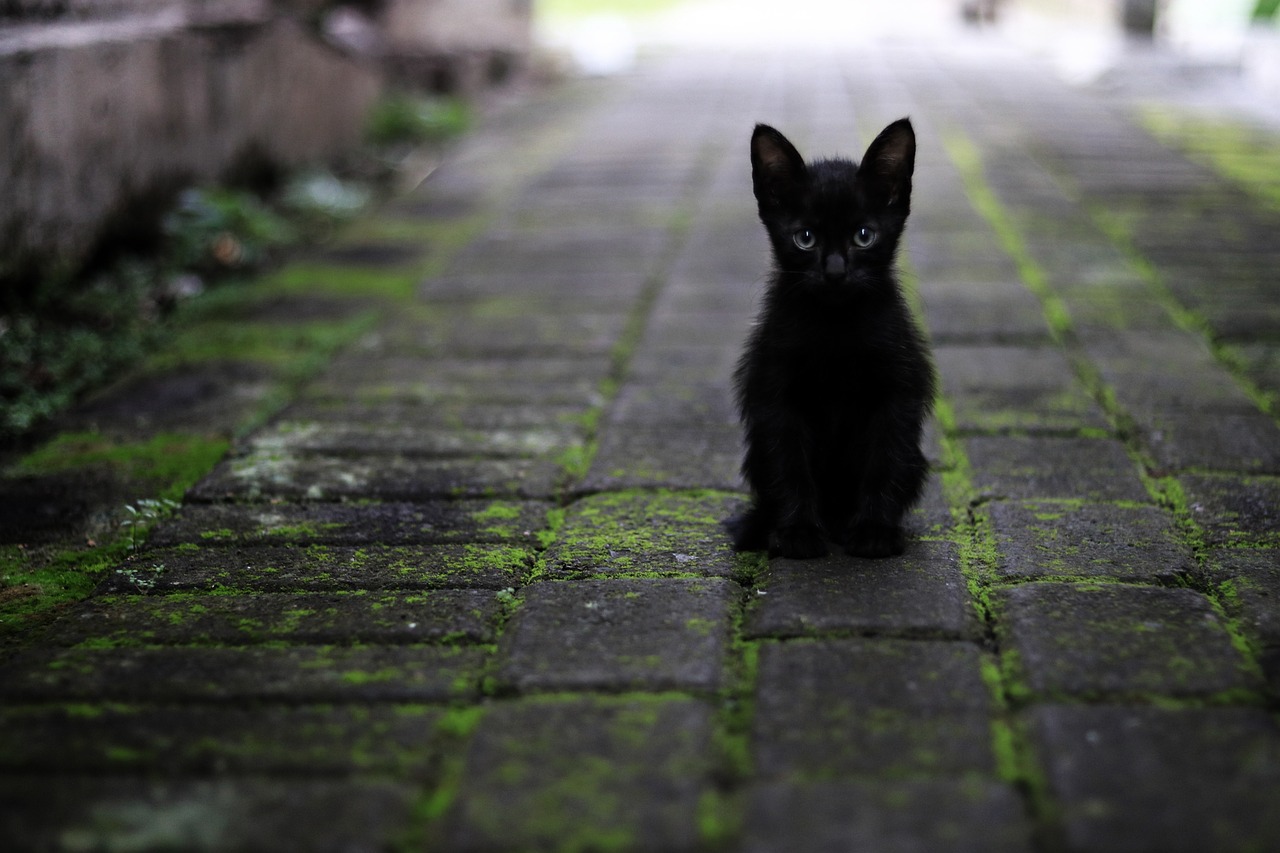
Temperament and Personality
The British Longhair cat is not just a pretty face; it's a bundle of personality wrapped in a plush coat! These felines are renowned for their sweet and gentle demeanor, making them fantastic companions for both families and individuals. If you're looking for a cat that is not only adorable but also has a heart of gold, then the British Longhair might just be your perfect match. Their friendly nature means they are often the first to greet you at the door, ready to shower you with love and affection.
One of the standout traits of the British Longhair is their affectionate nature. These cats thrive on companionship and are known for their loving behavior towards their owners. They often seek out attention, curling up in your lap or following you around the house, almost like a loyal shadow. It’s as if they know that your lap is the comfiest spot in the house and they are determined to claim it! This desire for closeness enhances their appeal as pets, making every cuddle session feel like a warm hug from a fluffy cloud.
But don’t let their calm demeanor fool you—British Longhairs are also quite playful. They enjoy engaging in various activities that stimulate both their minds and bodies. Whether it’s chasing a feather toy or pouncing on a laser dot, these cats have a knack for turning any mundane moment into a fun-filled adventure. Just imagine watching your British Longhair leap and bound across the room, showcasing their agility and grace! Playtime is not just a way for them to burn off energy; it’s also a bonding experience that strengthens the relationship between you and your furry friend.
Another fascinating aspect of their personality is their independence. British Longhairs possess a unique ability to entertain themselves when their owners are busy. This characteristic makes them low-maintenance companions, as they don’t require constant attention. Imagine being able to work from home or enjoy a quiet evening without your cat demanding your undivided attention! They are perfectly content lounging in a sunny spot or engaging in solo play, which means you can enjoy your personal time without feeling guilty.
Moreover, British Longhairs are generally sociable creatures. They tend to get along well with other pets and children, showcasing their adaptability to different environments. Whether you have a dog, another cat, or little ones running around, these cats can seamlessly integrate into your household. Their friendly disposition makes them a hit at family gatherings, as they are likely to charm everyone with their good-natured antics. It's like having a furry ambassador of joy in your home!
In summary, the of the British Longhair cat make them an irresistible choice for pet lovers. Their affectionate nature, playful spirit, independence, and sociable traits combine to create a delightful companion that can bring joy and warmth to any home.
- Are British Longhair cats good with children?
Yes, they are generally very friendly and sociable, making them great companions for kids. - How much grooming do British Longhair cats require?
They need regular brushing to keep their coat healthy and free of mats. - Do British Longhairs get along with other pets?
Absolutely! They are known for their adaptability and typically get along well with other animals. - What is the average lifespan of a British Longhair cat?
With proper care, they can live anywhere from 12 to 15 years or longer.
Affectionate Nature
The British Longhair cat is not just a pretty face; their makes them truly special companions. Imagine coming home after a long day, and there, waiting for you at the door, is your fluffy friend, tail high and eyes sparkling with joy! These cats are known for their loving behavior towards their owners, often seeking out attention and cuddles. It’s like they have an innate ability to sense when you need a little extra love. They thrive on human interaction, often following you around the house, ready to jump into your lap the moment you sit down.
What sets them apart is their gentle demeanor. Unlike some breeds that may be a bit aloof or standoffish, British Longhairs are incredibly social and affectionate. They enjoy being petted and will happily nuzzle against you, purring softly as you stroke their luxurious fur. It’s as if they are saying, “I’m here for you!” This loving nature not only makes them great companions but also helps to strengthen the bond between you and your feline friend.
When it comes to expressing their affection, British Longhairs have a few favorite ways to show they care:
- Cuddles and Snuggles: They love to curl up next to you on the couch, soaking up your warmth and companionship.
- Purring: The soothing sound of their purr is a sure sign of contentment and affection.
- Head Butting: This adorable gesture is their way of marking you as their own and showing love.
Moreover, their affectionate nature makes them suitable for families and individuals alike. They are known to be great with children, often forming close bonds with the little ones in the household. Whether it’s a gentle nudge to get your attention or a playful paw to invite you to join in on the fun, British Longhairs have a knack for making everyone feel loved and included.
In essence, the affectionate nature of the British Longhair cat is a significant reason why they are so adored by pet owners. They don’t just want to be your pet; they want to be your friend, your confidant, and your cuddle buddy. With their warm hearts and loving personalities, they truly enrich our lives and make every day a little brighter.
Q: Are British Longhair cats good with children?
A: Yes, they are known for their gentle and friendly nature, making them great companions for families with children.
Q: How often should I groom my British Longhair?
A: Regular grooming is essential, ideally a few times a week, to prevent matting and keep their coat healthy.
Q: Do British Longhairs require a lot of attention?
A: While they enjoy companionship, they are also quite independent and can entertain themselves when needed.
Playfulness
When you think of the British Longhair cat, you might picture a serene feline lounging gracefully in a sunbeam. However, beneath that calm exterior lies a playful spirit just waiting to burst forth! These cats are not only adorable but also possess a delightful sense of playfulness that can brighten any day. Imagine a fluffy ball of fur pouncing around your living room, chasing after a feather toy as if it were a wild hunter on the prowl. Their playful antics can be both entertaining and heartwarming, making them a joy to be around.
British Longhairs are known for their curious nature, which drives them to explore their surroundings with enthusiasm. Whether it's batting around a crumpled piece of paper or engaging in a game of hide and seek, these cats find joy in the simplest of activities. They thrive on interaction, and their playful behavior often encourages their owners to join in on the fun. After all, who can resist a game of chase with a fluffy companion? This playful trait not only strengthens the bond between you and your cat but also keeps them mentally stimulated and physically active.
One of the best ways to engage your British Longhair's playful side is through interactive toys. Consider investing in a variety of toys that cater to their hunting instincts, such as:
- Feather wands
- Laser pointers
- Interactive puzzle toys
- Catnip-filled mice
These toys can provide hours of entertainment and help keep your British Longhair in tip-top shape. Plus, watching them leap and bound with excitement is a sight that will surely make you smile! It's important to remember that playtime isn't just fun; it's essential for their physical health and emotional well-being. Engaging in regular play sessions can help prevent obesity, reduce stress, and satisfy their natural hunting instincts.
In conclusion, the playful nature of the British Longhair cat is a significant aspect of their charm. Their ability to switch from a calm companion to a lively playmate adds a delightful dynamic to your home. So, if you're considering bringing one of these adorable cats into your life, be ready for a delightful mix of snuggles and spirited play. After all, who wouldn't want a furry friend that can bring both joy and laughter into their everyday routine?
- How much playtime does a British Longhair need?
These cats thrive on daily playtime, ideally around 15-30 minutes of interactive play to keep them engaged and healthy. - What are the best toys for British Longhairs?
Opt for toys that stimulate their hunting instincts, such as feather wands, laser pointers, and puzzle toys. - Can British Longhairs play alone?
While they enjoy companionship, they can entertain themselves with toys when you're busy, thanks to their independent nature.
Independence
One of the most charming aspects of the British Longhair cat is their independent nature. Unlike some breeds that constantly crave attention and companionship, these cats have a unique ability to entertain themselves. This independence makes them particularly suitable for busy individuals or families who may not always be able to provide constant interaction. Imagine having a furry friend who is perfectly content lounging on a sunny windowsill while you’re caught up in your daily tasks. Isn’t that a dream come true?
British Longhairs are not the type to sulk or exhibit destructive behavior when left alone. Instead, they often engage in solitary play or simply enjoy observing the world around them. Their calm demeanor allows them to find joy in the simplest things, whether it’s chasing a feather toy or watching birds outside the window. This ability to be self-sufficient is a hallmark of their breed, making them low-maintenance companions.
However, it’s essential to ensure that your British Longhair has access to stimulating toys and activities to keep their minds sharp. Here are a few suggestions to enhance their independence:
- Interactive Toys: Toys that require problem-solving can keep your cat engaged for hours.
- Cat Trees: Providing vertical space allows them to explore and satisfy their natural climbing instincts.
- Window Perches: A cozy spot to watch the outside world can keep them entertained and content.
While they enjoy their alone time, it’s important to note that British Longhairs still appreciate quality time with their owners. They may not demand your attention constantly, but they will happily join you for a cuddle session when the mood strikes. This perfect balance between independence and affection makes them a delightful addition to any household.
Q: Are British Longhair cats good for families?
A: Absolutely! Their friendly and adaptable nature makes them excellent companions for families with children and other pets.
Q: How much grooming do British Longhairs require?
A: Regular brushing is essential to maintain their luxurious coat and prevent matting, ideally a few times a week.
Q: Do British Longhairs get along with other pets?
A: Yes, they are generally sociable and can adapt well to living with other animals in the household.
Q: How independent are British Longhairs?
A: They are quite independent and can entertain themselves, making them suitable for busy owners.
Social Interactions
The British Longhair cat is not just a pretty face; they are also incredibly social creatures that thrive on interaction with both humans and other pets. Imagine coming home after a long day, and your furry friend greets you with a gentle purr and a nuzzle against your leg. This affectionate behavior is just one of the many traits that make them such delightful companions. Their friendly disposition allows them to seamlessly integrate into various household dynamics, whether you have children, other cats, or even dogs.
One of the most remarkable aspects of the British Longhair's social nature is their ability to adapt. They are known to be patient and tolerant, making them excellent playmates for children. These cats often enjoy interactive playtime, whether it’s chasing a feather toy or engaging in a game of hide-and-seek. Their playful antics can bring joy and laughter to any household, creating lasting memories for families. Moreover, their gentle demeanor means they are unlikely to scratch or bite, which is a huge plus when kids are involved.
When it comes to other pets, British Longhairs generally display a calm and friendly attitude. They are not overly territorial and often share their space with other animals without much fuss. This adaptability makes them a great choice for multi-pet households. However, it’s essential to introduce them to new companions gradually. A little patience goes a long way, and soon enough, you may find your British Longhair snuggling up with a dog or playing with another cat. In fact, many owners have reported heartwarming scenes of their British Longhairs forming bonds with other pets, showcasing their natural sociability.
In addition to their interactions with family and pets, British Longhairs are also known for their welcoming nature towards visitors. They tend to be curious and will often approach guests with a friendly attitude, inviting them to pet and play. This sociable trait can make them a hit at gatherings, as they are likely to charm everyone with their fluffy coats and gentle personalities. It's not uncommon for a British Longhair to become the center of attention, basking in the affection of new friends.
In summary, the social interactions of the British Longhair cat are a vital part of their charm. Their ability to connect with humans and other animals alike makes them not just pets, but cherished family members. Whether they are engaged in playful antics with children or lounging peacefully beside a companion animal, these cats bring joy and warmth to any home. So, if you’re considering adding a British Longhair to your family, prepare for a furry friend that thrives on love and companionship!
- Do British Longhairs get along with dogs? Yes, they are generally friendly and can adapt well to living with dogs, especially if introduced properly.
- How do British Longhairs interact with children? They are known for their gentle and tolerant nature, making them excellent companions for children.
- Are British Longhairs social with other pets? Absolutely! They typically enjoy the company of other cats and pets, displaying a sociable demeanor.
- Will my British Longhair be friendly with strangers? Most British Longhairs are curious and welcoming towards visitors, often seeking attention from new people.
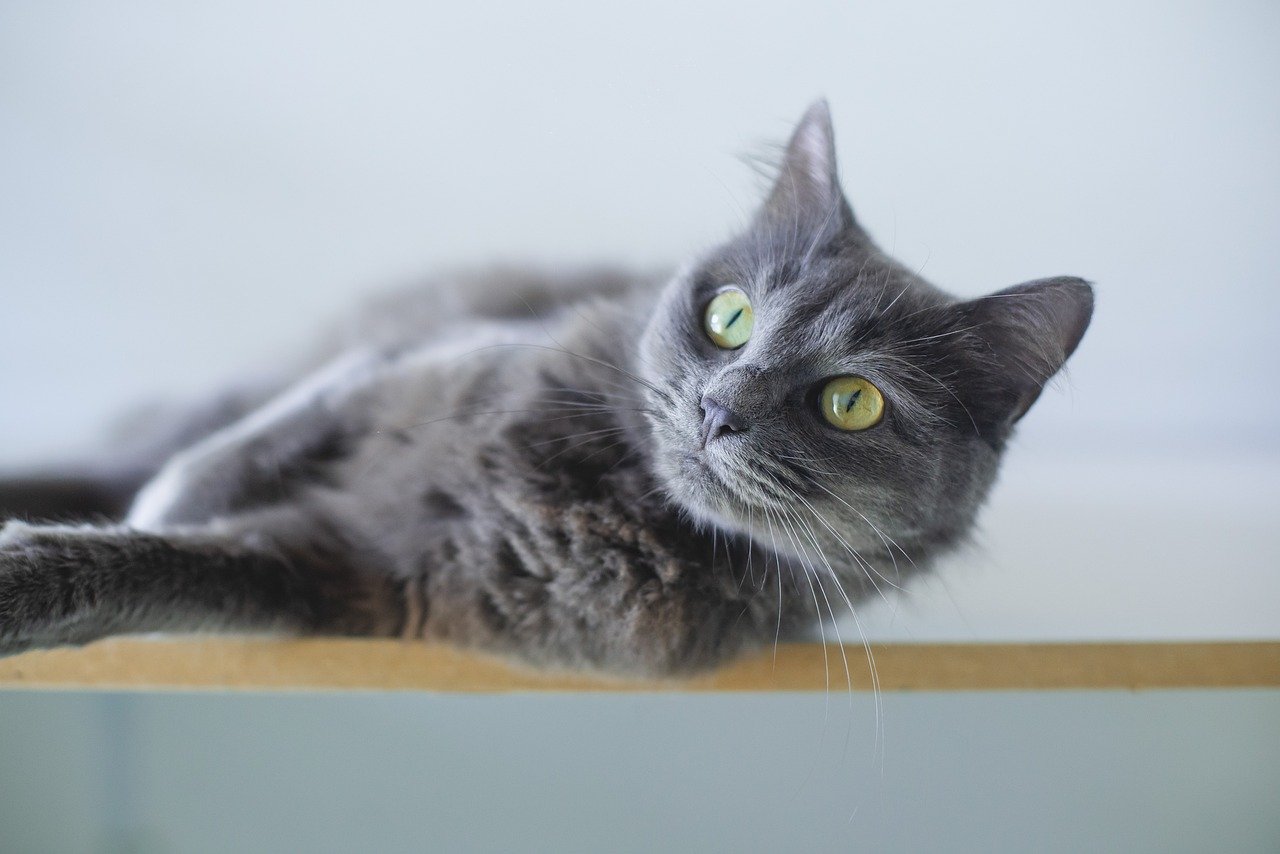
Care and Grooming
Taking care of a British Longhair cat is not just about keeping them looking fabulous; it's also about ensuring their overall health and happiness. These charming felines have a luxurious coat that requires regular attention to keep it in tip-top shape. Imagine trying to maintain a beautiful, flowing mane without a little TLC! Regular grooming sessions are essential, not just for aesthetics but to prevent painful matting and to keep their skin healthy. So, how often should you brush your British Longhair? Ideally, you should aim for at least two to three times a week. This frequency will help to remove loose fur and reduce shedding around your home.
When you groom your British Longhair, consider using a wide-toothed comb followed by a slicker brush. This combination will help to untangle any knots while also distributing natural oils throughout their fur, giving it that gorgeous shine. And let’s not forget about bathing! While British Longhairs don’t require frequent baths, a gentle wash every few months can help keep their coat fresh and clean. Always use a cat-specific shampoo to avoid irritating their skin.
Another important aspect of care is maintaining their dental hygiene. Just like humans, cats can suffer from dental problems if their teeth aren’t cared for. Regular brushing of your cat’s teeth can significantly reduce the risk of dental disease. If brushing is a challenge, consider dental treats or toys designed to help clean their teeth while they play. Keeping their claws trimmed is also vital; this will not only prevent scratching but also help them feel more comfortable.
In addition to grooming, you should pay close attention to their dietary needs. A well-balanced diet is crucial for keeping their coat healthy and their energy levels high. Look for high-quality cat food that lists meat as the primary ingredient, and make sure it meets the nutritional guidelines for their age and weight. Remember, a healthy cat is a happy cat!
Lastly, regular veterinary check-ups are essential in ensuring your British Longhair stays in peak condition. These visits can help catch any potential health issues early on, allowing for prompt treatment and care. Keeping an eye on their health can help extend their lifespan, which means more cuddles and playtime for you!
- How often should I groom my British Longhair?
It's best to groom them at least two to three times a week to prevent matting and reduce shedding. - Do British Longhairs need baths?
While they don’t require frequent baths, a gentle wash every few months can help keep their coat clean. - What should I feed my British Longhair?
Look for high-quality cat food that lists meat as the primary ingredient to ensure balanced nutrition. - How can I keep my cat's teeth healthy?
Regular brushing is ideal, but dental treats and toys can also help maintain their oral hygiene.
Dietary Needs
The dietary needs of the British Longhair cat are crucial for maintaining their health and vitality. These charming felines require a balanced diet that supports their unique physical characteristics and active lifestyle. Just like we need a variety of nutrients to thrive, British Longhairs benefit from a well-rounded diet that includes high-quality protein, fats, and essential vitamins and minerals.
When choosing cat food, it’s essential to look for options that list meat as the first ingredient. This ensures that your furry friend is getting the protein they need to support their strong muscles and overall health. In addition to protein, they also need healthy fats that provide energy and help maintain their luxurious coats. Think of it like a well-balanced diet for humans; we all need the right mix of nutrients to feel our best!
Here’s a quick breakdown of what to consider when feeding your British Longhair:
- High-Quality Protein: Look for chicken, turkey, or fish as primary ingredients.
- Fats: Omega fatty acids are vital for a shiny coat and healthy skin.
- Vitamins and Minerals: Ensure the food contains essential nutrients like taurine, vitamins A, E, and D, as well as calcium and phosphorus.
Additionally, it’s important to monitor their weight. British Longhairs have a tendency to gain weight if overfed, which can lead to health problems down the line. Maintaining a regular feeding schedule, providing measured portions, and incorporating playtime can help keep them at a healthy weight. Think of your British Longhair as a little athlete; they need the right fuel to stay active and happy!
Lastly, hydration is key. Always provide fresh water, and consider incorporating wet food into their diet. Wet food not only helps with hydration but can also be more palatable for some cats. Remember, a well-fed British Longhair is a happy British Longhair!
1. What is the best type of food for a British Longhair cat?
The best type of food for a British Longhair is high-quality cat food that lists meat as the first ingredient. Look for balanced nutrition that includes proteins, fats, vitamins, and minerals.
2. How often should I feed my British Longhair?
It’s generally recommended to feed your British Longhair twice a day, providing measured portions to prevent overeating.
3. Can British Longhairs eat wet food?
Yes, wet food can be a great addition to their diet as it helps with hydration and can be more appealing to some cats.
4. How do I know if my British Longhair is overweight?
You can tell if your British Longhair is overweight by feeling their ribs; you should be able to feel them without excess fat covering. Additionally, if they have difficulty jumping or playing, it may be time to reassess their diet.
Health Considerations
When it comes to the health of your beloved British Longhair cat, being proactive is the name of the game. These charming felines, with their plush coats and adorable round faces, can be prone to certain health issues, just like any other breed. However, with the right care and attention, you can help ensure that your furry friend leads a long, happy, and healthy life. Regular veterinary check-ups are essential; they allow for early detection of potential health problems, which is crucial in managing any issues that may arise.
One common health concern in British Longhairs is their predisposition to obesity. Due to their laid-back nature, they can easily become couch potatoes, leading to weight gain. It's vital to monitor their diet closely and ensure they get enough exercise. Providing interactive toys and engaging in playtime can help keep them active. Additionally, consider portion control when feeding them to avoid overindulgence.
Another important aspect of their health is dental care. British Longhairs can be prone to dental issues, so regular brushing of their teeth is recommended. This practice not only helps prevent bad breath but also reduces the risk of gum disease. You might think of it as a spa day for their mouth—who doesn’t love a little pampering?
Furthermore, it’s essential to stay informed about genetic conditions that may affect the breed. For instance, British Longhairs can be at risk for hypertrophic cardiomyopathy (HCM), a heart condition that can lead to serious complications if left untreated. Regular veterinary check-ups can help monitor their heart health, and your vet may recommend specific tests to screen for HCM.
To summarize, here are some key health considerations for your British Longhair:
- Regular Veterinary Check-ups: Essential for early detection of health issues.
- Weight Management: Monitor diet and encourage play to prevent obesity.
- Dental Care: Regular brushing to prevent dental diseases.
- Genetic Awareness: Stay informed about breed-specific conditions like HCM.
By keeping these health considerations in mind, you can help your British Longhair thrive. Remember, a healthy cat is a happy cat, and your furry companion deserves nothing less than the best care you can provide!
Q: How often should I take my British Longhair cat to the vet?
A: It's recommended to take your British Longhair for a check-up at least once a year. However, if your cat has existing health issues, more frequent visits may be necessary.
Q: What is the best diet for a British Longhair?
A: A balanced diet that includes high-quality protein, healthy fats, and essential vitamins and minerals is ideal. Consult your vet for specific recommendations based on your cat's age and health status.
Q: Do British Longhairs require special grooming?
A: Yes, their luxurious coats require regular brushing to prevent matting and hairballs. Aim for at least once a week, or more frequently during shedding seasons.
Q: Are British Longhairs generally healthy cats?
A: While British Longhairs can be prone to certain genetic conditions, with proper care, regular vet visits, and a healthy lifestyle, they can live long and healthy lives.
Frequently Asked Questions
- What makes the British Longhair cat so special?
The British Longhair cat is adored for its plush coat, round face, and sturdy build. Their charming appearance is complemented by a sweet and gentle personality, making them a perfect companion for families and individuals alike.
- How do I groom a British Longhair cat?
Grooming is essential for maintaining the British Longhair's luxurious coat. Regular brushing is necessary to prevent matting and keep their fur healthy. Aim for at least once a week, but more frequent grooming may be needed during shedding seasons.
- Are British Longhairs good with children and other pets?
Absolutely! British Longhairs are known for their sociable nature. They generally get along well with children and other pets, making them a great addition to a busy household.
- What is the temperament of British Longhair cats?
These cats are known for their affectionate and gentle demeanor. They love to cuddle and seek attention from their owners, yet they also have an independent streak, allowing them to entertain themselves when needed.
- What should I feed my British Longhair cat?
A balanced diet is crucial for the health of your British Longhair. Look for high-quality cat food that meets their nutritional needs, and consider consulting your veterinarian for specific dietary recommendations tailored to your cat's age and activity level.
- What health issues should I be aware of with British Longhairs?
Like all breeds, British Longhairs can be prone to certain health issues. Regular veterinary check-ups and being aware of common problems, such as obesity and dental issues, can help ensure a long and healthy life for your furry friend.
- How much exercise do British Longhairs need?
While British Longhairs are generally calm, they enjoy playtime and need regular exercise to stay healthy. Interactive toys and play sessions can help keep them physically active and mentally stimulated.
- Can British Longhairs be left alone for long periods?
Yes, British Longhairs are quite independent and can entertain themselves if left alone for a while. However, they do appreciate companionship and may become lonely if left alone for extended periods, so it's good to spend quality time with them when you can.

